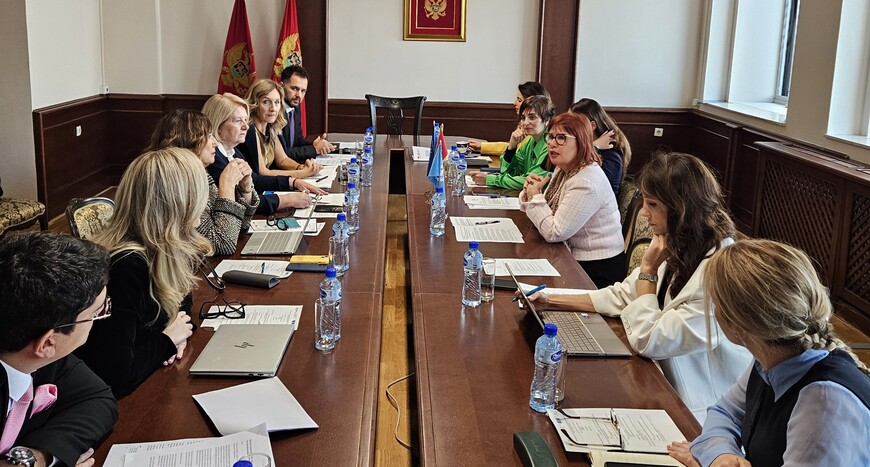Montenegro is moving toward more consistent protection for victims of serious crimes with the first working group meeting held to draft the Guidelines for enhancing judicial practices in compensating the victims.
Through a clearly defined recommendations, the Guidelines will provide expert and advisory support to judges in the process of deciding on compensation claims within criminal proceedings, as well as to state prosecutors and lawyers regarding the process of evidence collection and the legal representation of victims.
The working group brings together representatives of courts, prosecution offices, and the Bar Association, with the support of the joint program of the European Union and Council of Europe - Horizontal Facility for Western Balkans and Türkiye, as well as UNODC.
The meeting was opened by the President of the Supreme Court of Montenegro, Ms Valentina Pavličić, who stated that the goal of the Guidelines is to ensure the consistent application of the law and greater legal security for victims: “The drafting of these guidelines is not only the fulfilment of Montenegro’s strategic goal in combating human trafficking, but also a contribution to strengthening judicial practice and protecting the rights of victims of other serious crimes.” The document should be completed by the end of 2025, and its implementation is planned for 2026.
This initiative is supported within the action “Strengthening accountability of the judicial system and enhancing protection of victims’ rights in Montenegro”, part of the joint European Union and Council of Europe programme “Horizontal Facility for the Western Balkans and Türkiye”, which enables the Beneficiaries to meet their reform agendas in the fields of human rights, rule of law and democracy and to comply with European standards.


